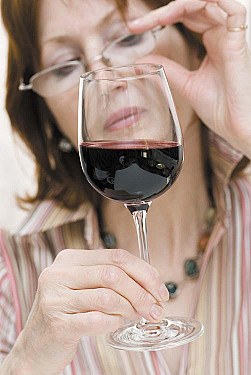Calcium may cut odds of colorectal cancer, while alcohol may boost them
Research we're watching
- Reviewed by Toni Golen, MD, Editor in Chief, Harvard Women's Health Watch; Editorial Advisory Board Member, Harvard Health Publishing; Contributor
 Boosting calcium intake may significantly reduce the odds of developing colorectal cancer (the third most common malignancy worldwide), while drinking more alcohol may raise your risks, according to a study published online Jan. 8, 2025, by Nature Communications.
Boosting calcium intake may significantly reduce the odds of developing colorectal cancer (the third most common malignancy worldwide), while drinking more alcohol may raise your risks, according to a study published online Jan. 8, 2025, by Nature Communications.
As part of ongoing research in the United Kingdom called the Million Women Study, researchers examined dietary data and health records from nearly 543,000 women (average age 56) to investigate the link between 97 food products and nutrients and the risk of colorectal cancer. All participants completed detailed dietary questionnaires at the start of the study in 2001, and 2.3% of the women went on to develop colorectal cancer.
Out of all 97 dietary factors, calcium showed the strongest protective effect, with each 300 milligrams consumed each day — about the amount in a large glass of milk — linked to a 17% reduced risk of colorectal cancer. (Calcium's protective role was independent of dairy milk intake, however.) Meanwhile, alcohol was linked to higher odds of colorectal cancer. Each additional 20 grams of alcohol participants consumed daily — about the amount in a large glass of wine — was associated with 15% higher risk of the disease.
Image: © eyesfoto/Getty Images
About the Author

Maureen Salamon, Executive Editor, Harvard Women's Health Watch
About the Reviewer

Toni Golen, MD, Editor in Chief, Harvard Women's Health Watch; Editorial Advisory Board Member, Harvard Health Publishing; Contributor
Disclaimer:
As a service to our readers, Harvard Health Publishing provides access to our library of archived content. Please note the date of last review or update on all articles.
No content on this site, regardless of date, should ever be used as a substitute for direct medical advice from your doctor or other qualified clinician.
















